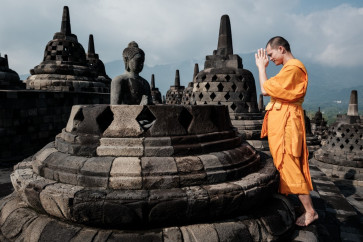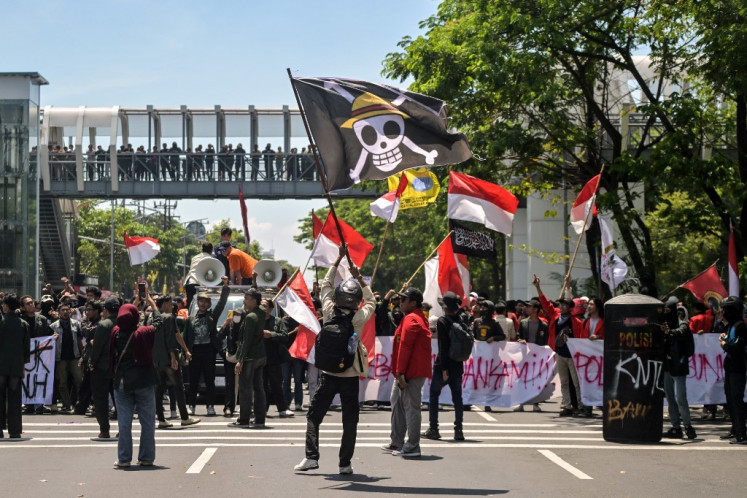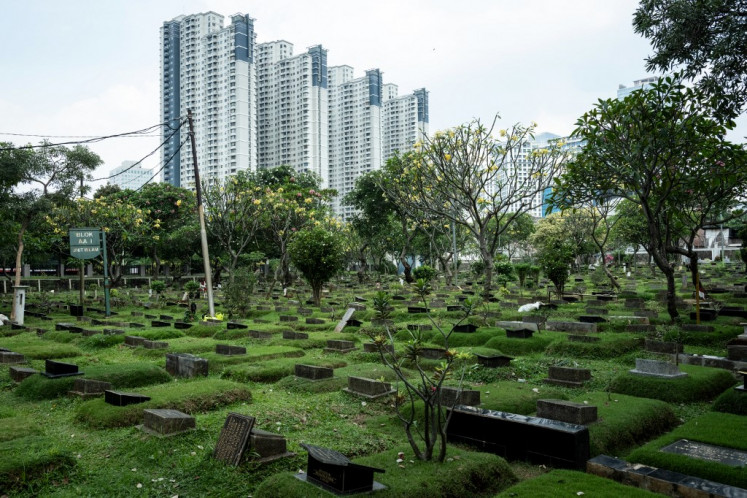Popular Reads
Top Results
Can't find what you're looking for?
View all search resultsPopular Reads
Top Results
Can't find what you're looking for?
View all search resultsE. Java goes ahead with plan to issue bylaw on Shia
The East Java provincial administration may go ahead with its plan to issue a bylaw on the spread of religion regarded as capable of causing sectarian strife and disturbing public order
Change text size
Gift Premium Articles
to Anyone
T
he East Java provincial administration may go ahead with its plan to issue a bylaw on the spread of religion regarded as capable of causing sectarian strife and disturbing public order.
“The bylaw is still being discussed. It doesn’t mean that the government bans a person from embracing a religion, but we will ban the spread of faiths that are capable of disrupting peace and order within the community,” East Java Deputy Governor Saifullah said on Friday.
The concept to enact the ordinance is part of the provincial administration’s initiative in responding to demands from Sunni clerics in Madura and the East Java Indonesian Ulema Council (MUI) chapter for the government to ban Shia activities because they are viewed as deviating from mainstream Islamic teachings.
The Shia ban refers to the 10 misguided criteria issued in the MUI national working meeting in Jakarta on Nov. 6, 2007, as well as the world’s clerics’ consensus in the Declaration of Amman, Jordan, in 2005.
The 10 misguided criteria issued by MUI include teachings which deny any of the pillars of faith, believing and following beliefs which are not in line with the Koran and Hadith (Prophet Muhammad’s deeds), believing in sacred revelations after the Koran, denying the authenticity of the Koran’s contents, interpreting the Koran not based on the rules of interpretation, denying Prophet Muhammad’s hadith, insulting the prophets and Prophet Muhammad, denying Muhammad was the last prophet, adding and subtracting basic religious rituals set in the Sharia and regarding fellow Muslims as infidels.
Saifullah said the government responded to and appreciated the proposals from MUI and Madura clerics. However, the response remains in line with the government’s corridors, which is in accordance with the regional autonomy law.
“The bylaw will be in the form of a gubernatorial decree, regulation, or others. Its implementation in the field will be supervised by the police and community. It is currently being studied intensively,” he said.
Saifullah added that the regulation was made to prevent a group from judging another group as deviant. To prove the truth of the allegations, the government would fully devolve the matter to the court.
East Java Muhammadiyah executive board secretary Nadjib Hamid said there was yet an agreement between religious leaders regarding the regulation restricting the spread of faiths that might have potential to disturb the public order.
“We are currently discussing it carefully, so as to prevent any party from being hurt. The regulation is not made for the Shia group, but all religious groups,” Nadjib said after a meeting discussing the bylaw.
East Java legislative Commission E on Community Welfare council member, Kuswiyanto, said his commission supported the passage of the provincial bylaw.
“The regulation apparently could spark protests from religious freedom groups, but for the sake of public order in East Java, the governor has to be firm, despite being regarded as violating basic human rights,” he said.
Malang’s Maulana Malik Ibrahim Islamic State University rector Imam Suprayogo said Shia beliefs, which were part of human ideology, could not be resolved through regulation or laws. “In Islam, no one should claim to be the most righteous. Islam does not proscribe such thoughts,” said Imam.
He added that clerics should not have said that a particular teaching is deviant or heretical, saying that MUI should have embraced all groups and stand the middle ground to protect and provide a sense of security to all.
The issuance of the bylaw restricting religious beliefs has been criticized as counter-productive for the preservation of religious diversity in Indonesia.










